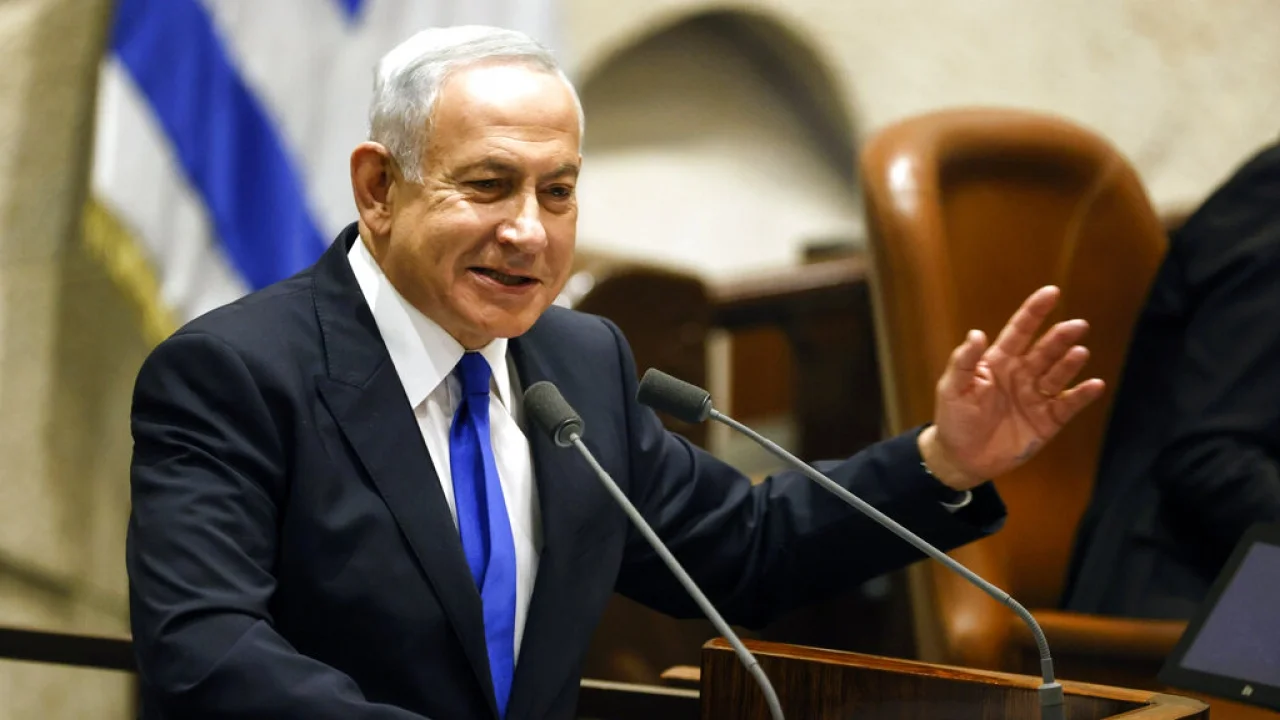Israeli Prime Minister Benjamin Netanyahu has set aside political differences to form an emergency war government with the country’s opposition leader, Benny Gantz. This unexpected alliance comes in the wake of a major blow to Israel from Hamas, which has been accused of continued oppression of innocent Palestinians for decades.
The emergency government was established as Israel faced an unprecedented crisis, with the conflict intensifying over the Gaza Strip. Despite long-standing political divisions, Netanyahu and Gantz joined forces as Israel continued relentless attacks on Palestinians.
The decision to form the coalition government followed a significant attack on Israel by Palestinian resistance fighters, resulting in the tragic loss of at least 1,200 lives. This assault was characterized as the worst attack faced by Israeli forces in 75 years.
Reports from Gaza underscore the grim reality, with over 1,000 Palestinians losing their lives due to relentless Israeli air and artillery strikes. These attacks have transformed entire city blocks into ruins, leaving a trail of destruction and human suffering.
Tragedy has not been limited to the Palestinian territories. International organizations have reported casualties among their staff. The United Nations confirmed that 11 of its personnel have been killed in Gaza, while the International Red Cross and Red Crescent Societies mourned the loss of five of their members.
The crisis, which some have dubbed “Israel’s 9/11,” compelled Netanyahu to reach a political accord with Gantz. As part of the deal, Netanyahu pledged to temporarily freeze his government’s controversial judicial overhaul plan, which had sparked massive protests within Israel.
Notably, Israeli opposition leader Yair Lapid did not immediately join this temporary alliance, although a joint statement indicated that a seat would be “reserved” for him in the war cabinet.
The situation in Israel has taken a grim turn as concerns mount for the safety of around 150 hostages, primarily Israelis, held in Gaza by Hamas. The group has claimed the deaths of four captives in Israeli strikes and issued threats of further harm to hostages if civilian targets are bombed without prior warnings from Israel.
In addition to the humanitarian concerns within Gaza, Israel has leveled over 1,000 buildings and imposed a total siege, effectively cutting off essential supplies like water, food, and energy for 2.3 million people. The Gaza Strip’s sole power plant ceased operations due to fuel shortages, plunging the region into darkness.
The conflict has displaced more than 260,000 Gaza residents, and the United Nations Secretary-General, Antonio Guterres, has expressed grave fears about the already dire humanitarian situation.
The European Union has called for the establishment of a “humanitarian corridor” to allow civilians to escape the fifth war in Gaza in 15 years. Meanwhile, Arab League foreign ministers, in a meeting held in Cairo, called for immediate access to provide aid to Gaza.
As the situation escalates, Israel appears to be gearing up for a potential ground invasion of Gaza. The nation also faces the threat of a multi-front war, having come under rocket attacks from militant groups in neighboring Lebanon and Syria. Recent incidents, including Israeli strikes in southern Lebanon and rocket sirens in northern Israel, underscore the complexities of the situation.
The United States, in response to these developments, has redeployed an aircraft carrier battle group to the eastern Mediterranean. President Joe Biden has warned Israel’s enemies, whether they are states or groups, not to become involved. Furthermore, the U.S. has delivered “advanced armaments” to southern Israel’s Nevatim Airbase.
The crisis continues to intensify, with Gaza experiencing heavy bombardment that has resulted in significant casualties and extensive destruction. Reports indicate that residential buildings, mosques, factories, and shops have been targeted, leaving residents in a state of devastation.
Medical supplies, including essential oxygen, are running dangerously low at Gaza’s overwhelmed Al-Shifa hospital, according to emergency room physician Mohammed Ghonim.
The evolving situation in the region demands close international attention as it threatens to unleash further instability and human suffering.




